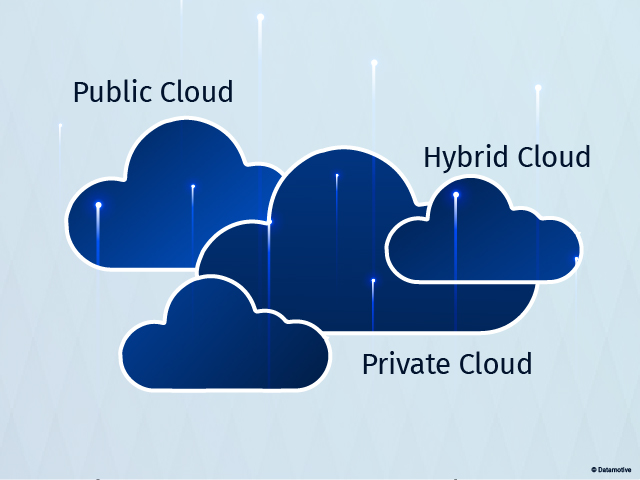In today's fast-changing IT landscape, organizations are rapidly embracing multi-cloud strategy in order to ensure flexibility, resilience, and innovation. However, this brings up a host of challenges while managing IP across multiple cloud environments. This article delves into the challenges of multi-cloud IP retention, challenges of multi-cloud adoption, and the difficulties organizations must navigate.
Multi-Cloud IP Retention: Definition
An organizational ability to maintain data ownership in multi-cloud architectures over its internet protocol when hosting on multiple cloud service providers is called multi-cloud IP retention. Securing internet protocol in multi-cloud includes protecting the following:
-
Software code: Source code, binaries, and associated documentation.
-
Data: Customer data, proprietary algorithms, and sensitive information.
-
Patents and trademarks: Legal protections for innovations and brand identity.
-
Trade secrets: Confidential business information and know-how.
Multi-Cloud IP Retention: Challenges
Multi-cloud environments increase the complexity of retaining IP. IP Protection in multi-cloud environments is more challenging as there are differences in data sovereignty in multi-cloud among providers, a larger attack surface, and the issue of inconsistent IP ownership and licensing agreements.
Data Sovereignty and Compliance
It is very challenging to navigate multi-cloud data sovereignty and compliance issues in multi-cloud environments. Different countries and regions have different regulations on cloud data compliance and hybrid and multi-cloud IP management, along with data storage and movement, which makes it difficult to guarantee compliance with local laws. Industry-specific standards such as HIPAA or GDPR across different cloud platforms can be complex and time-consuming to meet.
Security and Privacy Concerns
The multi cloud security challenges and privacy risks have increased in multi-cloud environment settings. With more cloud service providers, the attack surface expands and so does the likelihood of data breaches. Strong encryption is essential between platforms, but it gets difficult to implement or manage it properly.
IP Ownership and Licensing
Clear ownership and control of internet protocol may be difficult to maintain in a multi-cloud environment. The terms of service of cloud providers may contain clauses that impact the ownership of internet protocol and the usage rights, thereby increasing the risk of infringement. Open-source software license management and dependency across multiple platforms are complex and may involve higher risks of IP infringement.
Visibility and Control
Multi-cloud environments suffer greatly from a lack of central visibility and control over data in movement. Tracking and managing IP across platforms can become cumbersome, which hampers effective monitoring and control. Migrating workloads and data between clouds can be complex and time-consuming and, in certain situations, even risky; therefore, data management and protection of IP are challenging in such environments.
Integration and Management
Managing and integrating IP through multiple cloud environments can also be quite complex due to differences in the APIs of management tools. This makes different cloud providers use unique interfaces and tools that can present difficulties in gaining a unifying view or managing them in a uniform way throughout. Finding and retaining people who have some experience with handling IP from multiple cloud environments can prove challenging as well.
Importance of IP Retention in Disaster Recovery
Robust IP retention forms a critical part of successful DR planning. While developing such a plan, the scope should include proper protection, along with IP recoveries, in continuation with businesses.
-
Minimizing downtime and financial losses: In case of a disaster, it is very important to quickly recover critical IP, including source code, customer data, and proprietary algorithms, in order to minimize downtime and financial losses.
-
Maintaining Business Continuity: Protecting sensitive IP ensures quick resumption of operations along with their competitive advantage when a disruption occurs.
-
Preserving Customer Trust: A data breach and loss of sensitive information can damage a company's image and break customer trust. Proper retention of IP helps in protecting customer data and their trust.
-
Facilitating Rapid Recovery: With the backup and recovery mechanisms for critical IP assets, businesses can easily recover and restore their operations without much disruption to their services.
Organizations can reduce the risks and ensure business continuity by incorporating strong IP retention measures into their DR plans.
How Datamotive Helps in IP Retention in DR
Datamotive's EasyHybridDR particularly addresses the cloud interoperability challenges or data governance in multi-cloud along with the challenge of retaining IP in a multi-cloud DR environment. It goes beyond mere data replication, as it can granularly capture specific data sets containing critical IP for focused restoration efforts, reducing unnecessary data recovery and streamlining the process.
In addition, industry-leading security measures on encryption at rest and transit guarantee confidentiality and integrity through the replication and recovery. Our DR solution’s 10-minute Recovery Time Objective (RTO) makes EasyHybridDR perfect for rapidly restoring key IP in the event of a disaster and minimizing down time while maintaining business. EasyHybridDR offers an easy to use, centrally managed view of IP replication and recovery across multiple environments, that makes DR processes easier and decreases errors. To summarize, EasyHybridDR offers:
-
Granular IP capture: Focuses on specific data sets containing critical IP.
-
Uncompromising security: Employs encryption at rest and in transit.
-
Accelerated recovery: 10-minute Recovery Time Objective (RTO).
-
Simplified management: Centralized and user-friendly interface.
Conclusion
Multi-cloud IP retention is considered to be important for enterprises in the present digital market. Organizations are capable enough to protect their valuable internet protocol while getting all the advantage of multi-cloud, if they have proper knowledge of the challenges and deploy IP retention strategies for multi-cloud appropriately.
Datamotive's EasyHybridDR allows organizations to retain and recover critical IP in case of unexpected disasters so that business continuity is ensured with minimal impact from the disruption.
